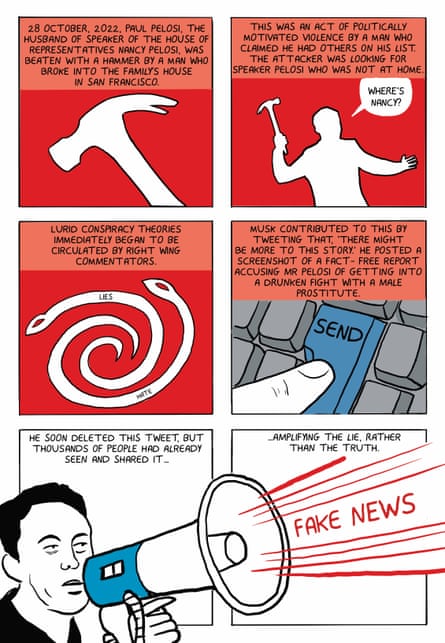Adrian Horton , The Guardian; Ronan Farrow on surveillance spyware: ‘It threatens democracy and freedom’
"Surveilled, now on HBO, is, on one level, a visual accompaniment to Farrow’s bombshell April 2022 report on how governments – western democracies, autocratic regimes and many in between – secretly use commercial spyware to snoop on their citizens. The hour-long documentary, directed by Matthew O’Neill and Perri Peltz, records the emotional toll, scope and threat potential of a technology most people are neither aware of nor understand. It also serves as an argument for urgent journalistic and civic oversight of commercial spyware – its deliberately obscure manufacturers, its abuse by state clients and its silent erosion of privacy.
The film, like Farrow’s 2022 article and much of his subsequent reporting, primarily concerns a proprietary spyware technology called Pegasus that is produced by the Israeli company NSO Group. Pegasus, as the film chillingly demonstrates, can infiltrate a private device through one of its many third-party apps, sometimes with one click – via a spam or phishing link – or, for certain models, without any help of the device’s owner at all. Once activated, Pegasus can control your phone, turn on your microphone, use the camera, record voice or video, and disgorge any of its data – your texts, photos, location. It is very possible, and now documented, to be hacked by Pegasus and not even know it.
Surveilled follows Farrow on his globe-trotting efforts to trace the invisible, international scope of Pegasus: to Tel Aviv, the center of the commercial spyware industry, where NSO executives toe the party line that the group only sells to governments for law enforcement purposes and has no knowledge of its abuses. To Silicon Valley, where the giant tech companies such as WhatsApp are in a game of cat and mouse with Pegasus and others infiltrating its services. To Canada, where the University of Toronto’s Citizen Lab leads efforts for transparency on who has Pegasus, and what they are doing with it. And to Barcelona, where Citizen Lab representatives detect Pegasus hacks, suspected from and later confirmed by the Spanish government, on pro-Catalan independence politicians, journalists and their families...
“All of the privacy law experts that I’m talking to are very, very afraid right now,” he added. “This tech is just increasingly everywhere, and I think we have to contend with the inevitability that this is not just going to be this path of private companies selling to governments.”
Though in part a film of journalistic process, Surveilled also advocates for a regulatory framework on commercial spyware and surveillance, as well as awareness – even if you are not a journalist, a dissident, an activist, you could be surveilled, with privacy writ large at stake."
